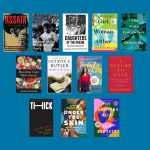As part of Huffington Post and iVillage’s new Mothers-Daughters Campaign, Melinda Gates spoke out yesterday about the important role women play in changing the world–and that she believes this is largely done these days by improving the lives of women.
And how it’s crucial that women pass that spirit of giving in the interest of women on to their daughters.
"It’s so important for women to encourage their daughters to become more engaged in the problems of people in need," Melinda says. "We know that improving women’s health, by ensuring access to reproductive health services and developing tools to address the unique needs of women, is crucial for improving family health and the health of communities…Our global development work, which is focused on agriculture and financial services, has at its heart the goal of empowering the world’s poorest people – most of them women with young children. Our daughters will play a crucial role in creating a world where everyone has the opportunity to live a healthy, productive life. We should be encouraging and nurturing them to do that work well."
And we certainly know that to be true here at The Women’s Foundation, where the return on investment that Melinda speaks about when philanthropists invest in women is ever-present in our work, and in the work of our Grantee Partners.
 Where we know that the investments we’re making today are impacting, changing and improving the lives of the daughters who will follow us.
Where we know that the investments we’re making today are impacting, changing and improving the lives of the daughters who will follow us.
While going through some of our photos yesterday, I came across this one, featuring the statement, "We are the leaders we have been waiting for."
This, and Melinda’s statement, got me thinking about the legacy of giving and engagement we will leave today’s girls and young women, and I can’t help but wonder what that will look like.
I think had you asked my mother when she was growing up what she would have wished different for me, she would have said that she would want me to finish school with more than two career options (those presented to her had been teacher and nurse).
Mission accomplished. When I graduated, I felt that the world was wide open, and stepped right in.
But I’m sure there were also disappointments. I think she would have certainly changed many of the challenges she faced economically and in terms of legal and social supports as a single mother–many of which still exist today for women throughout the country (and world). As a nurse (50-50 odds), I think she would have wanted a world where all women of my generation had access to health insurance, information and care–which is far from reality. She would probably have hoped that the world would be safer for women of my generation than it is in terms of violence and domestic abuse. And I think as a nurse and mother of two daughters in the nonprofit sector that she’d have a lot to say about that wage-gap that still afflicts us.
With every passing generation it seems that women experience victories, while also maintaining many of the same challenges, and often, accepting new ones.
My peers and I see HIV/AIDS as a daily reality and concern–particularly given the many economic, social and power inequities that contribute to its increasing spread among women in minority populations and developing countries–which my mother couldn’t even have concieved as a threat for her daughters’ generation.
I also worry about the increasing pressure on young women to grow up too fast in terms of their dress, behavior and lifestyle, while my mother probably celebrated how much more freedom her daughters and their girlfriends had in dress, lifestyle and everyday choices than she did.
And so I ask, what would you wish to be different for your daughters, or the girls who will follow behind us to lead tomorrow? What fights do you hope they won’t have to fight? What challenges do you most hope they will view as a mere passing piece of history?
What issues do you expect them to take on…as activists, as philanthropists, as advocates?
What will it mean, to them, to serve their communities, countries, the world and women?
And how can we, as the women leading the way, best support them, best inform them, best educate them and best carve for them a pathway to their own leadership and vision?


